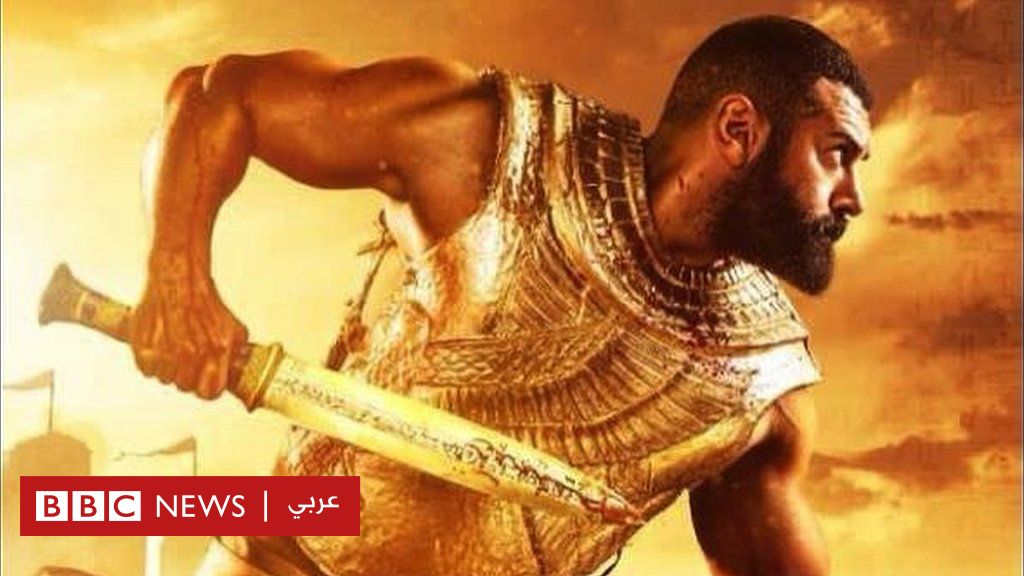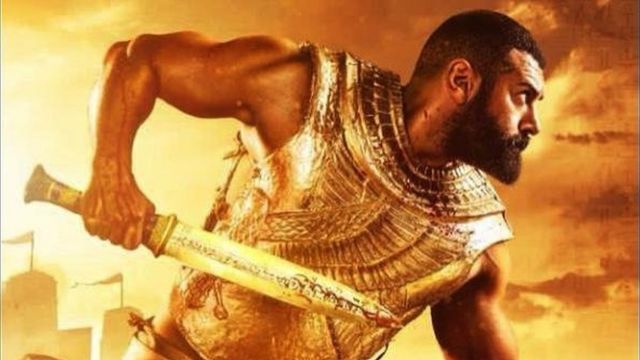
[ad_1]
The pioneers of social networking sites, especially the Egyptians, have been busy talking about the series “The King”, which will be broadcast next Ramadan, based on the novel “Good Struggle” by Egyptian writer Naguib Mahfouz.
Since the publication of the first snapshot of series hero Amr Youssef, which features the character of Pharaonic King Ahmose, the series and its industry have come under criticism.
Users expected the owner of the role of King Ahmose to be closer to him in his features than artist Amr Youssef.
But as soon as the show’s creators released the official promo video, the exclamations and criticism turned into a wave of ridicule.
“Ahmose Beard”
The images of actors Amr Youssef and Reem Mostafa have had the greatest share of irony.
Joseph did not give up his beard to present the character of the Pharaonic king, whom experts say documents and history books prove was not bearded, like the kings of the pharaohs.
The appearance of the beard on the face of someone supposed to convince the viewer that he is King “Ahmose” has aroused ridicule from observers and angered specialists.
Among them, Egyptian actor Tamer Farag, an antiques specialist, who posted a video on his Instagram page expressing his anger, although he expressed his admiration for the work possibilities and the appreciation of his colleagues.
Some specialists also clashed with antiques researcher and tour guide Ahmed Al-Senussi, who in numerous publications on his Facebook page defended the dramatic work and its details, including “Ahmose’s beard”.
Tamer Farag commented on Al-Senussi’s post, saying it was a “historical error” and that he “did not give his right to scientific integrity”.
Al-Senussi also responded to tour guide Ahmed Sameh in a series of tweets through his account.
Reem Mostafa’s Cape
In the promotional video for the series, actress Reem Mustafa, who plays the daughter of the King of Hyksos, wears the “mala’a” that is known to women of Alexandria in the modern era and to this day.
Mustafa appeared with dyed hair, which was one more reason to poke fun at his performance as the historical figure.
After the attack and mockery of the actress’ appearance, the show’s fashion coordinator, “Monia Fath El-Bab”, said the work was “dramatic and not historic.”
But this response did not convince the critics, who did not see in the dramatic context of the work a justification for not adhering to the details of the temporal and spatial framework in which it takes place.
The lack of consistency in the appearance of the actors with the historical period presented by the series was not the only reason for the attack of the drama of Ramadan.
Followers, especially scholars of history and civilizations, have spotted a number of other errors in the costumes of the actors and the weapons used in the battles depicted in the series.
And they saw in the filming and decoration of the battles “a reproduction of foreign series which dealt with civilizations and historical periods different from that presented by the King series”.
Some specialists counted dozens of errors in the three-minute video.
But critics have held the director of the work and his team the greatest responsibility for what they saw as “unforgivable and unjustifiable errors” in a work of this magnitude and importance, especially as it tells the story of Egypt.
Some considered that this series “underestimated” the viewers, as well as the history and civilization of the country.
Some have deplored the budget allocated to this work.
Source link
